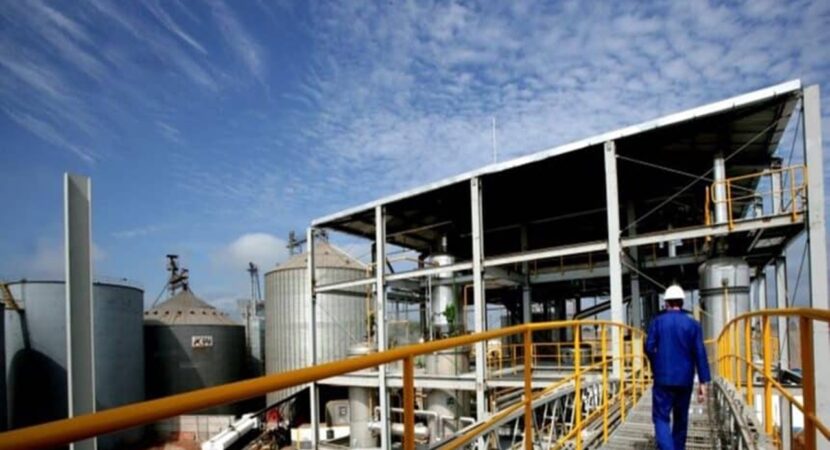
Sale of ethanol by mill owners directly to gas stations could become the 'solution' to contain and curb the rise in gasoline prices
On May 5th, the Constitution and Justice Commission (CCJ) of the Chamber of Deputies approved permission for the direct sale of ethanol from plants – bypassing distributors, to gas stations. The new measure can curb the increase in the price of gasoline and diesel, and ease the pockets of Brazilians.
Read also
- Demand for ethanol and gasoline plummets while diesel consumption soars in Brazil
- Ethanol price reaches almost 5 reais at the pumps and filling up with gasoline becomes more advantageous in some Brazilian regions
- Ethanol and gasoline prices soar, Petrobras increases CNG by 39% and readjustment could further impact Brazilians' pockets in the coming weeks
- Gasoline prices could skyrocket and ethanol could run out of stock due to the shortage of anhydrous alcohol; shortages will impact even more the pockets of Brazilians
- Ethanol price evaporates at the plants and exporting the biofuel to the USA, the world's main consumer of ethanol, becomes a very advantageous 'salvation'
- Bosch brings manufacturing from the US to Brazil and offers more than 70 high school, college and internship positions at its factories in SP, Curitiba and other Brazilian regions, this May 13
Currently, ethanol taxation is done in two stages: part in production, another in distribution. The text expected to be edited by the Government, still in May, should both equate the tax feasibility of direct sales, and put it into legislation, preventing the issue from being addressed again through a resolution by the National Agency of Petroleum, Natural Gas and Biofuels (ANP), with more volatile effects than in a law.
Pros and cons; Doubts and speculations about the direct sale of ethanol
Many doubts and speculations about the consequences and benefits of the direct sale of ethanol are still going on and important issues, such as taxation and quality control, need to be defined, since they can cause major distortions in competition.
The tax legislation takes into account that, specifically in the sale of hydrous ethanol, part of the taxes is charged from the plants and the other part from the distributors.
However, it is still not foreseen who will be responsible for collecting PIS/COFINS and ICMS from the distribution link, when the direct sale from the plant to the service stations is approved.
For the National Agency of Petroleum, Gas and Biofuel (ANP), the “linked distributor” should be created, that is, a distributor controlled by the mill owners, with simplified requirements, but authorized only to sell hydrous ethanol from the linked mills.
The Legal Combustível Institute (ICL), which works to combat the irregular market, argues that the solution lies in tax simplification, which would allow for a monophasia, with the collection of the tax at origin, in the form of an “ad rem” tax (R$/liter) and with a single rate between the states, thus avoiding tax asymmetry and lack of control in inspection.
With the direct sale of plants to gas stations, the Government proposes to apply the single-phase tax to producers only in these cases, so that there is no loss of tax collection. For other fuels, such as gasoline and diesel, federal taxation is already single-phase and focuses on refineries.
Brazilian Institute of Oil and Gas (IBP) is one of the project's main critics and says that, as it stands, the draft legislative decree could disorganize the sector's tax collection and cause unfair competition.
While the provisional measure is being articulated, mainly in the ministries of Economy and Agriculture, the Minister of Mines and Energy, Bento Albuquerque, assured, at the end of April, that the resolution of the tied distributor should be published by the ANP at any moment.
Direct sales from plants will stimulate competitiveness with gasoline
It is still not possible to know exactly how much impact the direct sale of ethanol would generate on the price of biofuel in Brazil, since there is a lot of dependence on industrial logistics in each state. However, a study by Esalq-Log, in 2019, showed that the average cost of transporting ethanol in the state of São Paulo would drop by around 30% with direct sales.
There are also estimates that the concentration of production and distribution margins in the producer and increased competition between mill owners and distributors in the supply of fuel in the market could reduce prices of hydrous ethanol for the final consumer by up to 20 cents per liter.
“The big gain is the appreciation of renewable fuel. It will be more competitive compared to fossil fuel, gasoline, and it will be more appetizing for the consumer to fill up”, points out Sévero.
Raízen, from the Shell Group, wants to build three plants producing ethanol made from sugarcane bagasse and straw
Raízen, the giant global producer of ethanol, together with Shell, intends to build three more cellulosic ethanol plants – or second generation. The good news was announced by businessman Rubens Ometto, from Cosan, on 15/03.
The technology for producing cellulosic ethanol emerged from a partnership between Shell and the Canadian company Logen, specialized in biotechnology. In the past harvest (2019/20), the Piracicaba unit produced 226 liters of ethanol for each ton of dry biomass.











